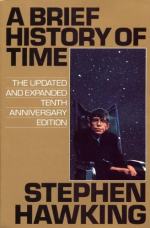|
This section contains 190 words (approx. 1 page at 400 words per page) |

|
Galileo Galilei Summary and Analysis
The author considers Galileo the founder of modern physics. This founding comes with a price—the Roman Catholic Church does not like the idea that science might contradict the Bible.
Galileo believes, as Copernicus, that the planets orbit the sun, and he writes to this effect. The Church sees this weakening of doctrine as a direct weakening of the Church in its fight against Protestantism and commands Galileo to stop writing about Copernican theory, which he does. Later, when one of Galileo's friends becomes pope, Galileo is allowed to write a book about both Aristotelian and Copernican theories as long as it passes the Church censors. The book is published in 1632, and later the pope wishes that it had not been. The pope orders Galileo to the Inquisition, where he is sentenced to house arrest for the rest...
(read more from the Galileo Galilei Summary)
|
This section contains 190 words (approx. 1 page at 400 words per page) |

|




